Two inspiring women, Claudette Mukampirwa, a programme participant, and Berna Rusagara, Executive Director of Women for Wome Rwanda, discuss how the organisation has impacted the lives of participants and their surrounding communities.
With the support of the Julius Baer Foundation, Women for Women Rwanda reduces wealth inequality by supporting female micro-entrepreneurs. Two inspiring women, Claudette Mukampirwa, a programme participant, and Berna Rusagara, Executive Director of Women for Women Rwanda, discuss how the organisation has impacted the lives of participants and their surrounding communities.
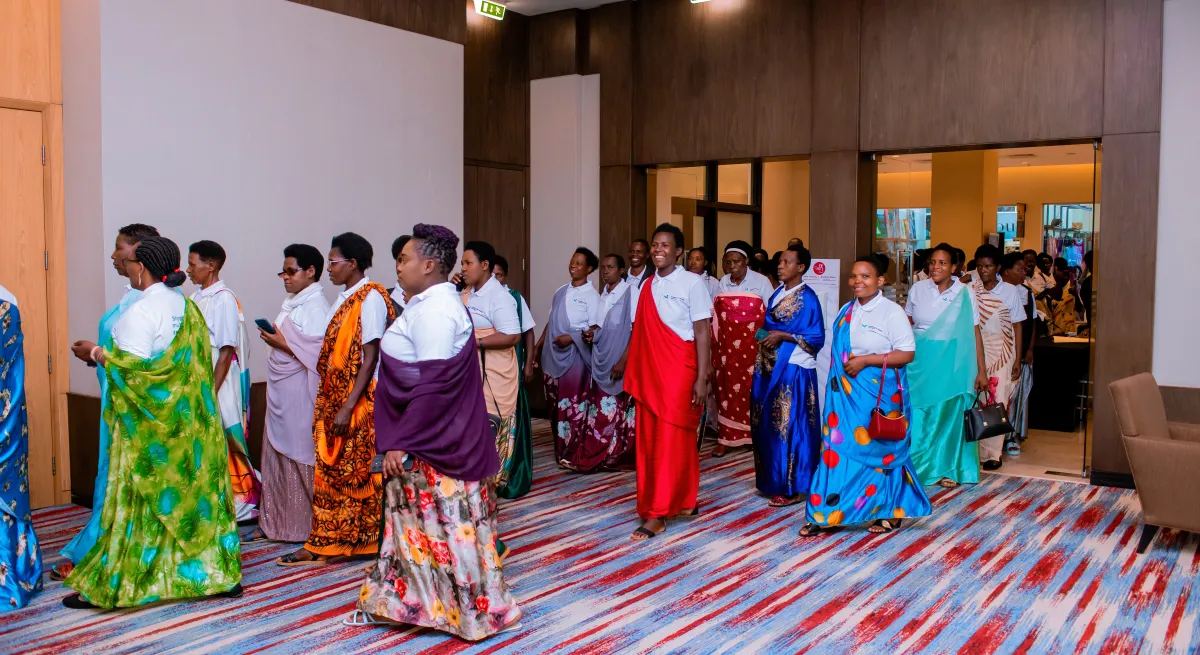
Over 1,440 female micro-entrepreneurs trained. 360 women successfully accessed new buyers and export markets. 45 business plans honoured with cash awards to invest. These numbers don’t even begin to measure the impact that the Julius Baer Foundation’s project, Women for Women Rwanda, has had on its participants and their surrounding communities in Rwanda.
Claudette Mukampirwa, a participant from Rwamagana district and the winner of the 2024 Finance Fair project competition, is the president of a 30-member agricultural cooperative. They grow French beans, aubergine and potatoes. “I was born into a family of farmers, and I grew up learning and practicing agriculture like my parents did.”
She was able to take her knowledge and experience in agriculture to a new level when she was accepted into Women for Women Rwanda’s programme. The organisation facilitates a 12-month social and economic empowerment programme where women meet bi-weekly in groups of 25 to learn and support one another. More than 1,440 graduates of this flagship programme were enrolled in advanced business skills and entrepreneurship training through a project funded by the Julius Baer Foundation. Women for Women Rwanda gave them the tools and knowledge they needed to build valuable social capital, the network and social ties to improve their position in society and then to compete with confidence in the market.
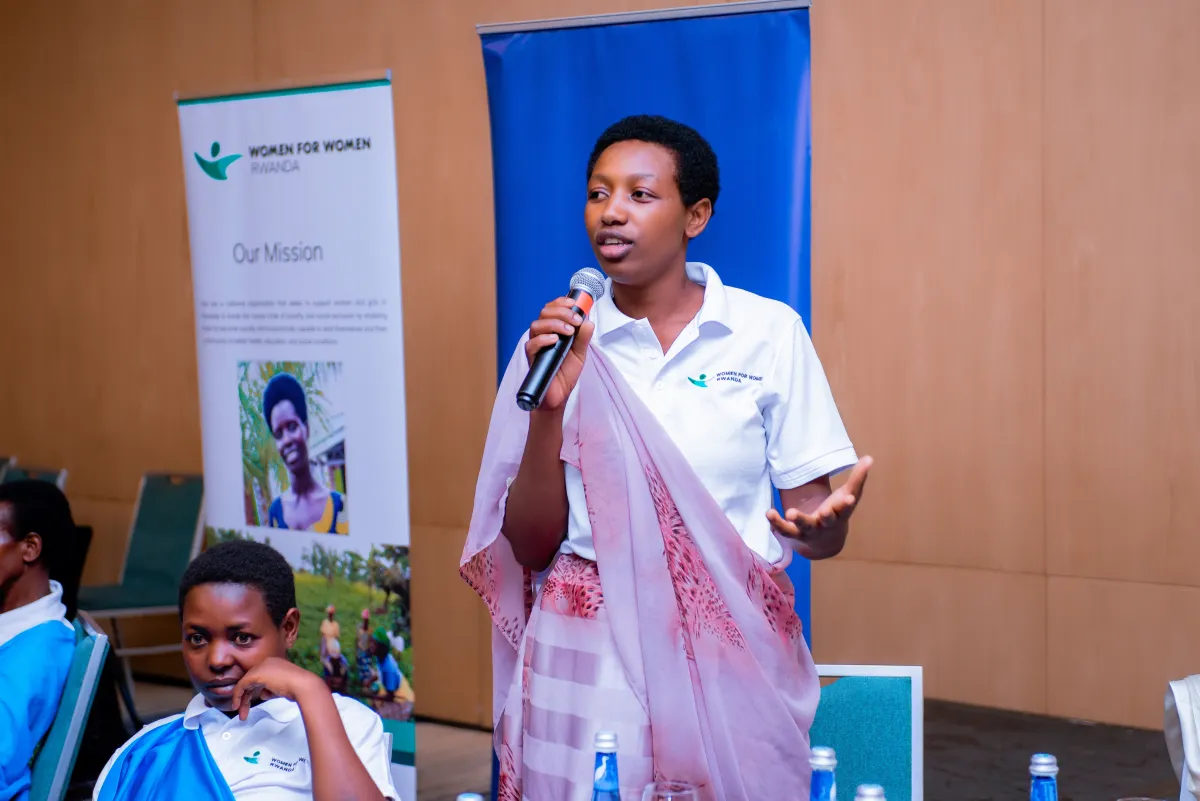
We target the hardest to reach, the most vulnerable, the least educated, and support them to reach their potential, offering training and connections to resources they need to rebuild their lives.
Beyond training, Women for Women Rwanda connects women micro-entrepreneurs like Claudette with major business players. “We target the hardest to reach, the most vulnerable, the least educated, and support them to reach their potential, offering training and connections to resources they need to rebuild their lives,” says Berna Rusagara, Executive Director at Women for Women Rwanda. From strawberry farms to basket weaving, women come out of the programme with an entrepreneurial mindset, the confidence to pursue their goals, and the resources to expand their businesses, support their families and strengthen their communities.
For Claudette, life before and after her involvement in Women for Women Rwanda’s programme is completely different. Before she enrolled, she cultivated enough to feed her family and sell a small surplus by hawking in the streets and waiting for market days, with no certainty day-to-day whether the products would sell. Her husband, a retired soldier, was the sole provider for their family, but he had no salary. Her work as a community health worker was voluntary, and the family struggled to put food on the table.
"Through the programme, I learned to innovate in agriculture, to develop a business plan, set goals and establish market connections. I now negotiate prices and sign contracts with customers in advance,” Claudette says. “We learned the importance of saving groups - my first savings contribution was just RWF 300 (CHF 0.18). Over time, I increased my contributions, and with my share I bought livestock.”
“We start the programme with upskilling. How do you improve your deals? How do you negotiate? How is the quality of your product?” says Berna.
From financial institutions to mentors, the programme connects women to vital networks so their businesses flourish. Entrepreneurs access new buyers and export markets and are introduced to funders, experts and policymakers at financial fairs. They’re supported by dedicated trainers, strategists and governance board members.
In line with the Julius Baer Foundation’s mission to reduce wealth inequality and its approach of connecting the economically advantaged with the economically disadvantaged to foster new skills, networks and opportunities, organisations like Women for Women Rwanda invest in vulnerable women and support them to break the cycle of poverty and social exclusion.
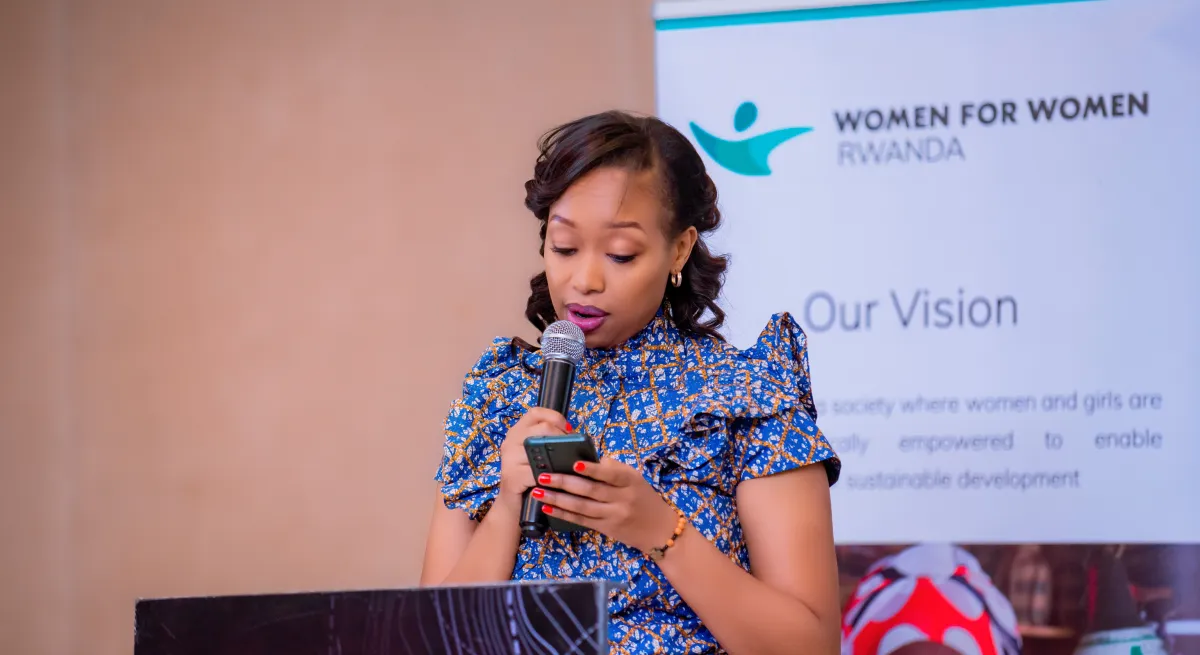
Through the programme, I learned to innovate in agriculture, to develop a business plan, set goals and establish market connections. I now negotiate prices and sign contracts with customers in advance.
“If we invest in a woman, she will invest in her household, herself and her community. There is a ripple effect that can expand by around four people,” says Berna.
Claudette already sees the impacts on the people around her. “My family’s life has improved tremendously. I no longer struggle to provide food for them. I employ men and women from my community. They go home with money to support their own families.”
Both Berna and Claudette agree that the most valuable takeaway from Women for Women Rwanda’s programme is the knowledge and access to collaborations and networks. “Working in cooperatives accelerates development and builds trust with various partners. I’ve learnt women need to be proactive in seeking partnerships with financial institutions like banks and microfinance organisations to boost their businesses,” Claudette concludes.
As a next step, she plans to implement an irrigation system to ensure consistent yield through all seasons, and she currently has an entrepreneur interested in her chili project. With support from Women for Women Rwanda, Claudette and many other women can now look forward to a more equal, peaceful and prosperous future.
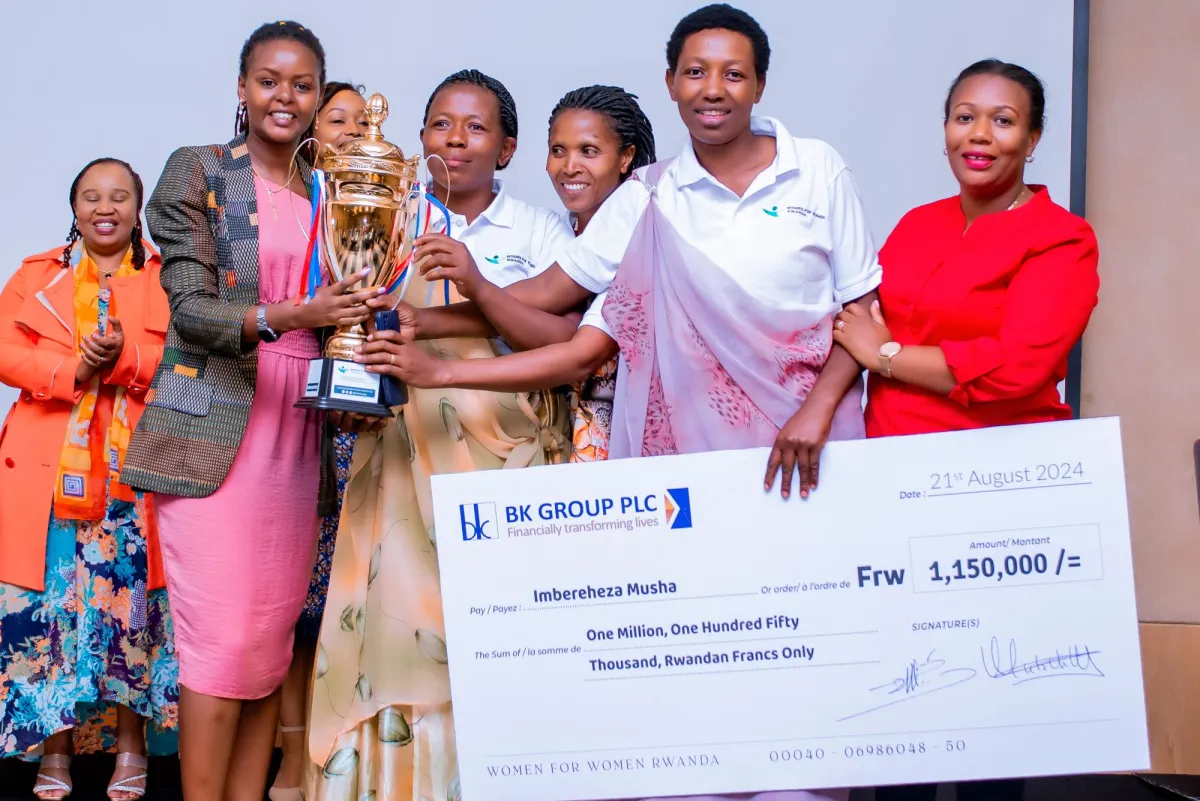
About Women for Women Rwanda
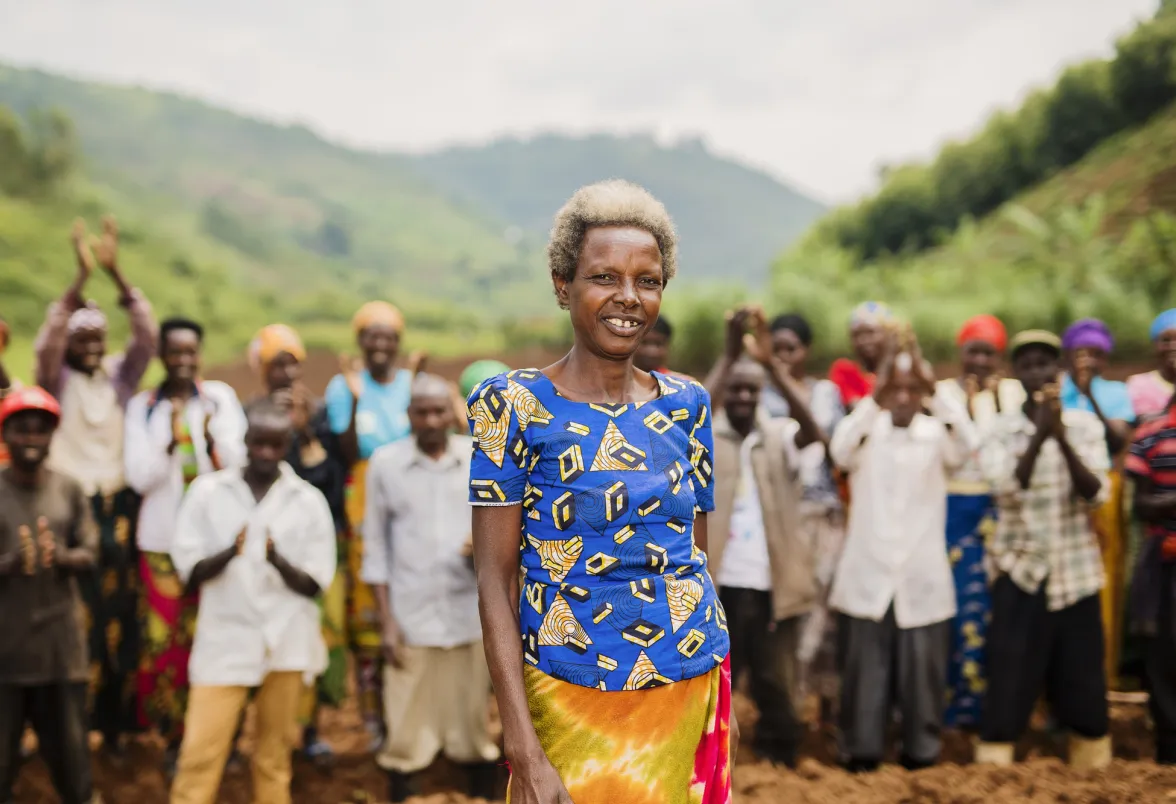
Make an impact that lasts a lifetime — discover opportunities at Women for Women Rwanda to donate, volunteer, work, and learn.
